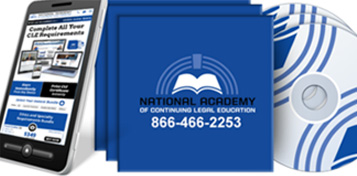About This Course
While bankruptcy is a useful tool for discharging debt or developing a plan to repay debts, understanding the different options for individuals or businesses is essential, as bankruptcy has long-term financial and legal consequences for people or entities who file under one of the various chapters of the Bankruptcy Code. Our expert panelists will describe the basics of the different options, the consequences of filing under one of the chapters, alternatives to bankruptcy, as well as key factors to consider when deciding to file a bankruptcy petition.
Chapters to be discussed include:
- Chapter 7: Available to debtors who are individuals, partnerships, business entities or corporations and provides for the “liquidation –sale of a debtor’s non-exempt property, and distribution of the proceeds to creditors.
- Chapter 11: Provides for the reorganization, usually of a corporation or partnership. Normally, the debtor proposes a reorganization plan to keep the business going and pay creditors over a period of time.
- Chapter 13: Provides for the adjustment of debts of an individual who has regular income. The debtor is allowed to keep property and pay debts over time, normally 3-5 years.






